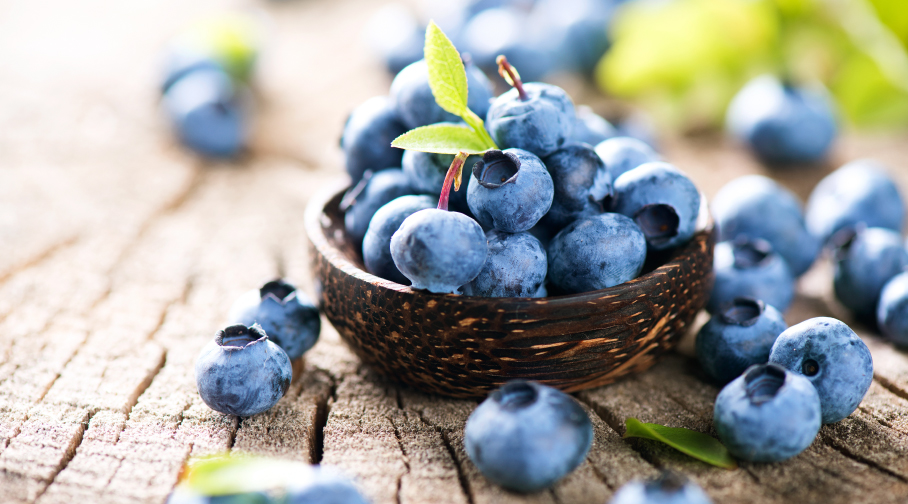Blueberries are often touted as a “superfood” due to their unique combination of taste and health benefits. With their vibrant color and sweet-tart flavor, they are not only a delicious addition to various dishes but also a powerhouse of nutrients. This article will explore the nutritional profile of blueberries, their health benefits, practical tips for selection and storage, and creative ways to incorporate them into your diet.

Nutritional Profile
Blueberries are low in calories but high in essential nutrients. Here’s a comprehensive look at their nutritional content:
- Calories: 57 per 100 grams
- Carbohydrates: 14.5 grams
- Fiber: 2.4 grams
- Sugars: 10 grams
- Protein: 0.7 grams
- Fat: 0.3 grams
- Vitamins:
- Vitamin C: 9.7 mg (16% DV)
- Vitamin K: 19.3 µg (24% DV)
- Vitamin B6: 0.1 mg (5% DV)
- Minerals:
- Manganese: 0.3 mg (18% DV)
- Copper: 0.1 mg (5% DV)
Key Health Benefits of Blueberries
- Rich in Antioxidants
Blueberries are packed with antioxidants, particularly anthocyanins, which help combat oxidative stress and inflammation, contributing to overall health. - Heart Health
Regular consumption of blueberries has been linked to lower blood pressure and improved cholesterol levels, reducing the risk of heart disease. - Cognitive Function
Studies have shown that blueberries may enhance brain function and delay age-related cognitive decline due to their high antioxidant content. - Weight Management
Low in calories and high in fiber, blueberries can promote feelings of fullness, making them an excellent choice for those looking to manage their weight. - Support Digestive Health
The fiber in blueberries aids in digestion, promoting a healthy gut and preventing constipation.
Practical Tips for Selection, Storage, and Consumption
Selection
- Look for Firmness: Choose berries that are firm, plump, and have a uniform color. Avoid those that are mushy or have blemishes.
- Check for Bloom: A natural, powdery coating (bloom) on the surface indicates freshness.
Storage
- Refrigeration: Store blueberries in the refrigerator to maintain freshness. They can last up to two weeks if kept dry.
- Freezing: For longer storage, wash and dry blueberries, then freeze them in a single layer on a baking sheet before transferring to an airtight container.
Consumption
- Fresh Snacking: Enjoy blueberries raw as a healthy snack.
- Smoothies: Blend them into smoothies for added flavor and nutrition.
- Baking: Incorporate blueberries into muffins, pancakes, or desserts for a sweet twist.
Seasonal Availability
Blueberries are typically in season from late spring to early summer, peaking in July. During this time, they are more flavorful and affordable. Look for local farms or farmers’ markets for the freshest options.
Creative Ways to Incorporate Blueberries into Your Diet
- Breakfast Bowls: Add blueberries to oatmeal or yogurt for a nutritious breakfast.
- Salads: Toss fresh blueberries into salads for a burst of sweetness.
- Sauces and Jams: Make homemade blueberry sauce or jam to enjoy with various dishes.
- Infused Water: Add blueberries to water for a refreshing and naturally flavored drink.
Precautions
While blueberries are generally safe for most people, some individuals may experience allergic reactions. Always consult with a healthcare provider if you have concerns about food allergies.
Conclusion
Blueberries are a versatile and nutrient-rich fruit that can enhance your diet in numerous ways. With their impressive health benefits and delicious flavor, they deserve a regular spot in your meals. Try incorporating blueberries into your diet today, and explore our related recipes to maximize their benefits!





